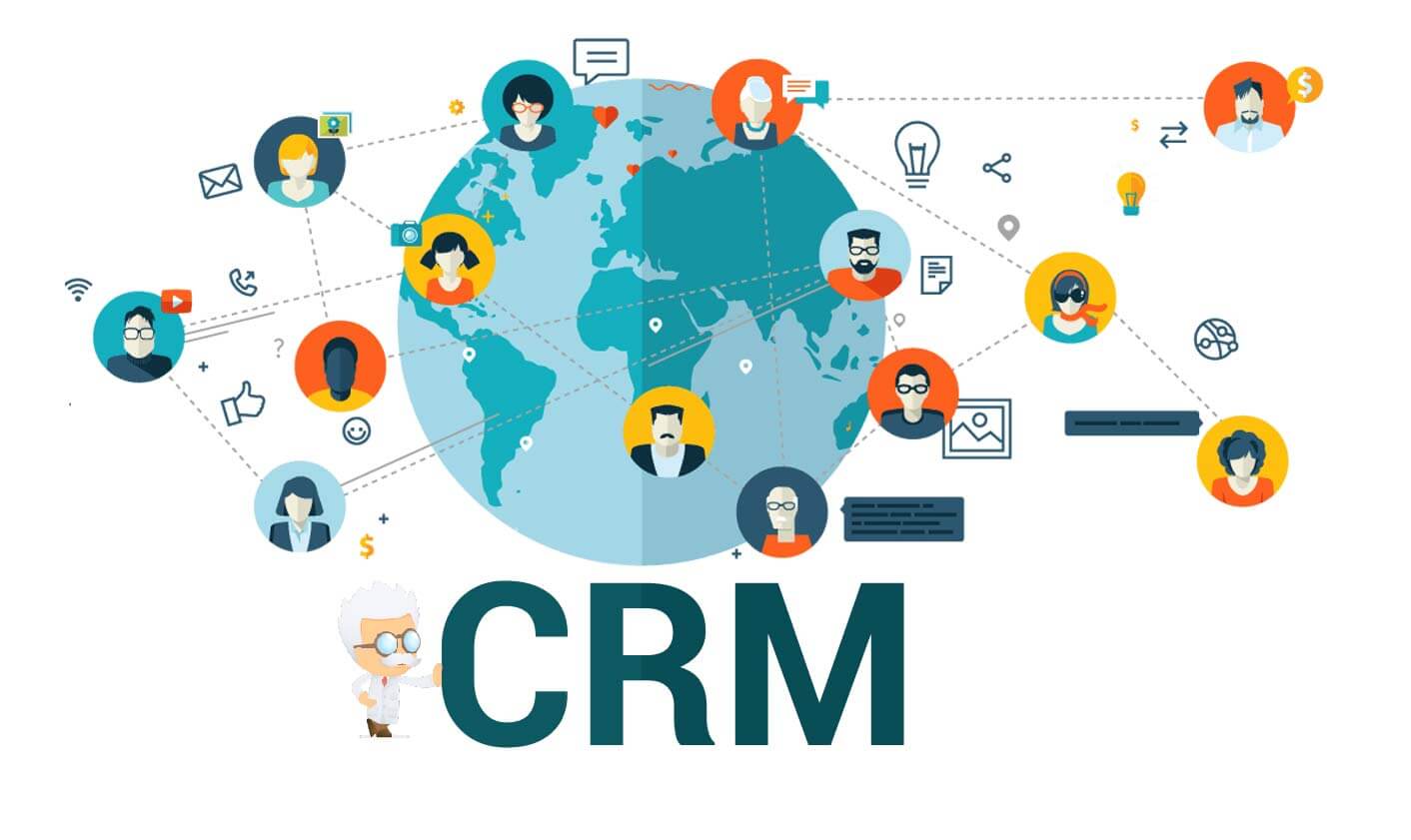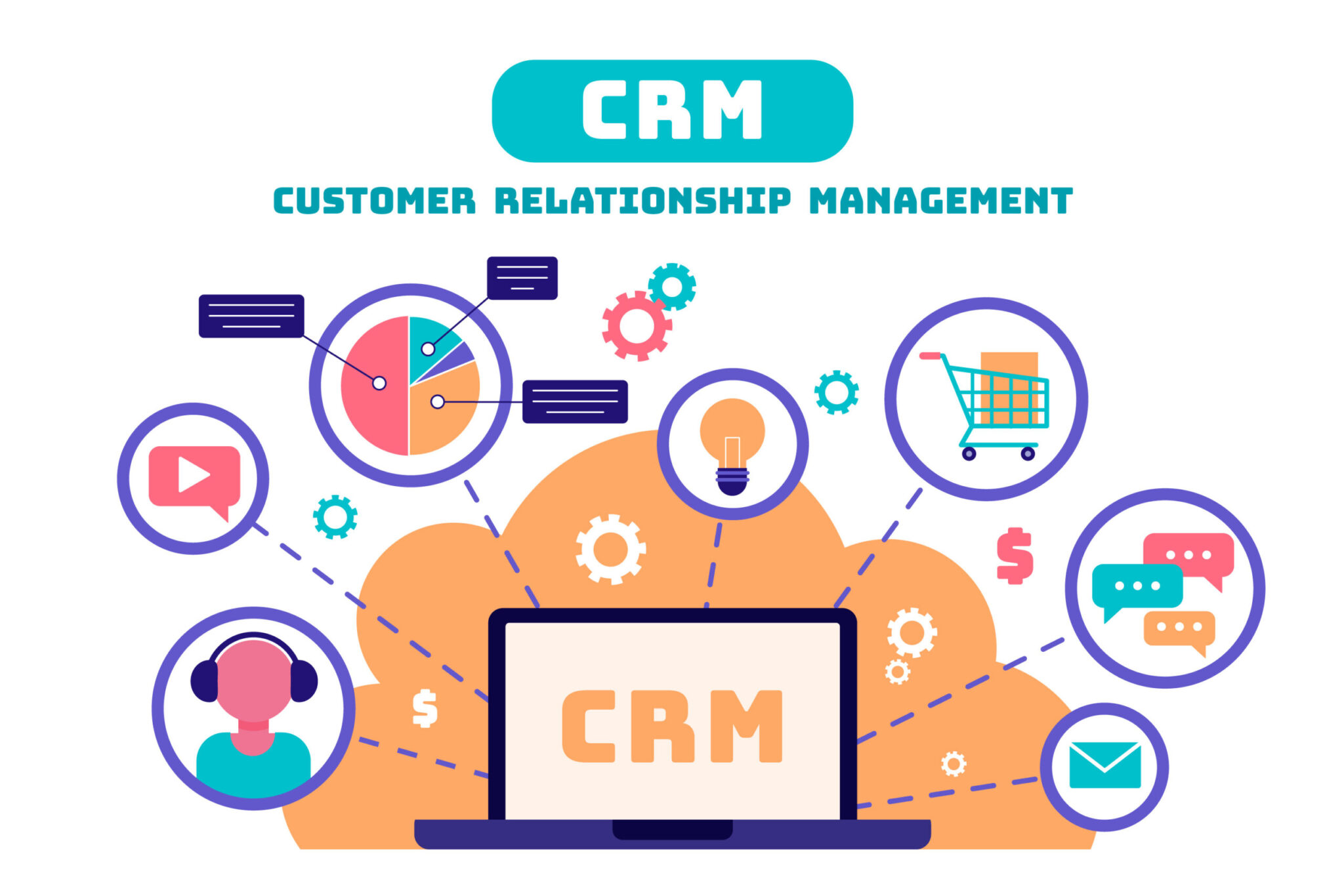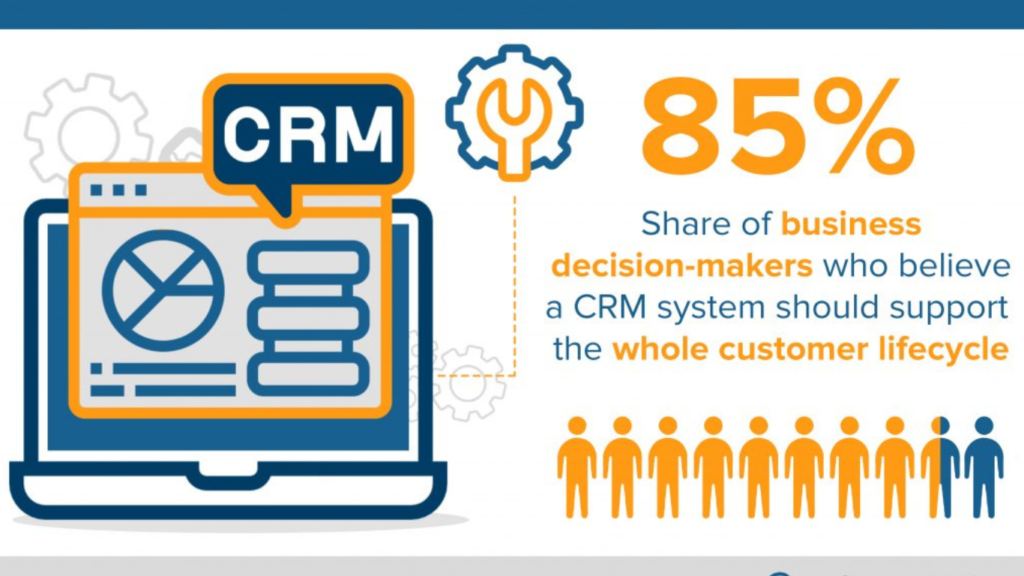Customer Relationship Management (CRM) software is constantly evolving to keep up with the changing needs and expectations of businesses and their customers. Here are some potential future trends in CRM software:
- Artificial Intelligence (AI) Integration : AI will play a bigger role in CRM software to improve customer interactions, automate processes, and provide better insights into customer behavior.
- Omnichannel Integration : Customers use multiple channels to interact with businesses. CRM software will need to integrate all channels (phone, email, chat, social media) to provide a seamless customer experience.
- Personalization : Customers expect personalized experiences. CRM software will need to collect and analyze data to deliver tailored interactions and recommendations.
- Integration with Internet of Things (IoT) devices : IoT devices are becoming more common in homes and businesses. CRM software will need to integrate with these devices to provide better insights into customer behavior and preferences.
- Data Security and Privacy : As data becomes more valuable, data security and privacy will be a top priority for businesses and customers. CRM software will need to ensure data is protected and compliant with regulations.
- Mobile Optimization : With the increase in mobile usage, CRM software will need to optimize for mobile devices to provide a seamless experience for customers and sales teams.
Overall, CRM software will continue to evolve to meet the changing needs of businesses and their customers. The key focus will be on improving the customer experience, providing better insights, and streamlining processes through the use of technology.

What is the future of CRM trends ?
The future of Customer Relationship Management (CRM) is exciting and constantly evolving, driven by advancements in technology and changing customer expectations. Here are some potential trends that will shape the future of CRM:
- Increased Use of AI and Automation : AI and automation will continue to play a significant role in CRM, enabling businesses to automate routine tasks, improve customer interactions, and gain valuable insights into customer behavior.
- Greater Focus on Customer Experience : The customer experience will remain a top priority for businesses, and CRM will play a vital role in delivering personalized, engaging experiences across multiple touchpoints.
- Omnichannel Communication : Customers expect seamless experiences across multiple channels, including phone, email, chat, social media, and more. Future CRM systems will need to integrate all channels to deliver a consistent, cohesive experience.
- Data Security and Privacy : As data becomes increasingly valuable, businesses will need to focus on data security and privacy to protect customer information and maintain trust.
- Integration with Other Technologies : CRM will continue to integrate with other technologies, such as IoT devices, chatbots, and social media platforms, to provide more comprehensive insights and better customer experiences.
In conclusion, the future of CRM will focus on delivering personalized experiences, automating routine tasks, and providing actionable insights to drive business growth. As technology continues to evolve, CRM will remain a critical component of modern business strategies.
.jpg)
What are the 5 major phases in a CRM ?
The five major phases of a Customer Relationship Management (CRM) system are as follows:
- Planning : In this phase, the organization sets its goals and objectives for the CRM system. It involves defining the scope of the project, identifying stakeholders, and establishing a project team.
- Analysis : This phase involves conducting a thorough analysis of the current business processes and customer interactions. This includes ide ntifying pain points and areas for improvement, as well as defining customer profiles and segmenting the customer base.
- Design : In this phase, the organization develops a plan for implementing the CRM system. This includes selecting a software vendor, defining the technical architecture, and establishing workflows and business rules.
- Implementation : This phase involves configuring the CRM system, importing data, and training users. It also includes testing the system to ensure that it meets the organization’s requirements.
- Maintenance : Once the CRM system is implemented, it needs to be maintained and updated regularly. This includes monitoring system performance, troubleshooting issues, and making modifications to improve the system’s effectiveness.
Overall, these five phases provide a structured approach to implementing a CRM system, ensuring that the organization is fully prepared for the new system, and maximizing the value of the system over time.

Why a CRM system is important to your business and its future growth ?
A Customer Relationship Management (CRM) system is critical to the success of any business, regardless of its size or industry. Here are some reasons why a CRM system is important to your business and its future growth:
- Improves Customer Relationships : A CRM system helps businesses build better relationships with their customers by providing a centralized database of customer information, enabling personalized interactions, and identifying customer needs.
- Increases Efficiency : A CRM system streamlines business processes, automates routine tasks, and eliminates manual data entry, saving time and increasing efficiency.
- Enhances Collaboration : A CRM system allows teams to share customer information and collaborate more effectively, enabling them to provide better customer service and improve cross-selling and upselling opportunities.
- Provides Insights : A CRM system provides valuable insights into customer behavior, preferences, and buying habits, allowing businesses to make data-driven decisions and target their marketing efforts more effectively.
- Improves Sales Performance : A CRM system provides sales teams with the tools they need to manage leads, track sales activity, and close deals more effectively, improving sales performance and driving revenue growth.
Overall, a CRM system is essential to a business’s growth and success, providing the tools needed to build strong customer relationships, increase efficiency, and make data-driven decisions. As businesses continue to compete in an ever-changing marketplace, a robust CRM system will be critical to their long-term success.

How will CRM help in the future ?
Customer Relationship Management (CRM) systems are already an essential part of many businesses, and their importance is only set to increase in the future. Here are a few ways CRM will help in the future:
- Personalization : As customers expect a more personalized experience, CRM systems will help businesses gather and analyze data to create a more personalized experience for their customers. This will help businesses to build a stronger relationship with their customers and increase customer loyalty.
- Automation : CRM systems are already automating many routine tasks, such as data entry and email marketing, and this trend is only set to continue. As technology improves, CRM systems will become even more intelligent, allowing businesses to automate more tasks, freeing up staff time for more strategic activities.
- Integration : In the future, CRM systems will become even more integrated with other business systems, such as ERP, marketing automation, and e-commerce platforms. This will provide businesses with a more comprehensive view of their customers, allowing them to provide better customer service and make more informed business decisions.
- Analytics : As data becomes more critical to businesses, CRM systems will become more sophisticated in terms of analytics. Businesses will be able to use this data to make more informed decisions about their sales and marketing efforts, as well as gain insights into customer behavior and preferences.
Overall, CRM systems will help businesses to provide a better customer experience, automate routine tasks, integrate with other business systems, and provide valuable analytics. As a result, CRM systems will continue to be a critical tool for businesses in the future.

What is the next evolution from CRM ?
The next evolution from CRM (Customer Relationship Management) is likely to be in the form of CDP (Customer Data Platform). While CRM systems were designed to manage customer interactions and store customer data, CDPs are designed to unify customer data from various sources to create a holistic view of the customer.
CDPs enable businesses to leverage customer data from various channels such as social media, email, mobile apps, and website interactions, and use it to gain insights into customer behavior, preferences, and needs. This can help businesses to create personalized marketing campaigns, improve customer engagement, and provide a better customer experience.
CDPs are different from traditional CRM systems in that they are designed to be more flexible and scalable, allowing businesses to add new data sources and adapt to changing customer needs. They also often incorporate advanced analytics and machine learning capabilities to provide deeper insights into customer behavior and trends.
In summary, the next evolution from CRM is likely to be in the form of CDP, which will enable businesses to create a more complete view of their customers, improve their marketing efforts, and provide a better customer experience.

Conclusion :
In conclusion, the future trends in CRM software are likely to be focused on improving the customer experience and providing a more personalized approach to customer engagement. Some of the key trends that we are likely to see include the increased adoption of AI and machine learning to enable more intelligent and personalized interactions with customers, the use of omnichannel communication to provide a seamless and consistent experience across all touchpoints, and the incorporation of social media and other online channels to enable more real-time engagement with customers.
In addition, there will be a greater emphasis on data privacy and security, as well as the need for CRM software to be more flexible and customizable to meet the unique needs of different businesses and industries. Cloud-based solutions will continue to be popular, allowing businesses to access their CRM data from anywhere, while also enabling easy integration with other business systems.
Overall, the future of CRM software looks bright, with continued innovation and advancements expected to enhance the customer experience and help businesses build stronger relationships with their customers.

